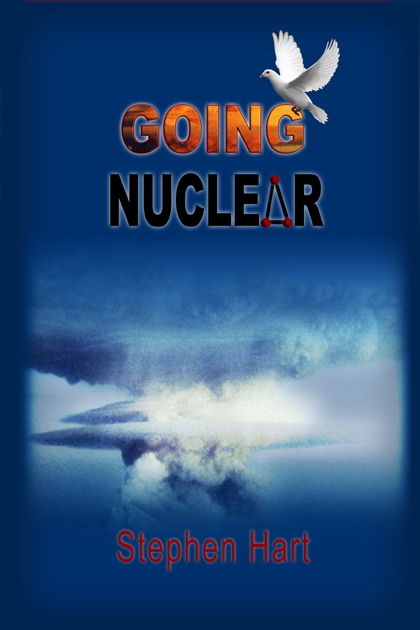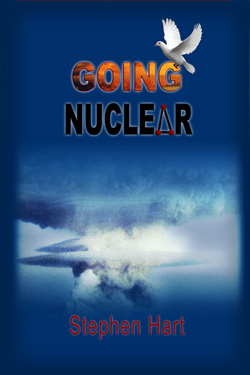 Going Nuclear is a novel that portrays the reaction of various individuals to the U.S. war effort in Vietnam. These characters do not participate in the conflict directly but nevertheless find their lives profoundly affected by the distant fighting.
Going Nuclear is a novel that portrays the reaction of various individuals to the U.S. war effort in Vietnam. These characters do not participate in the conflict directly but nevertheless find their lives profoundly affected by the distant fighting.
In an attempt to present a realistic view of these turbulent times, attitudes concerning America’s involvement in the war are depicted as strongly divided, often along generational lines, making the Vietnam experience very different from that of the previous generation’s war.
The book suggests that for many of the World War II era, the Japanese attack on Pearl Harbor coupled with Nazi aggression and atrocities in Europe made going to battle seem like an appropriate response to pure evil, while to a younger generation, the villagers in Vietnam seemed to pose no significant threat to the United States or any other part of the world.
Other influences alluded to in the story are the extensive media coverage of bloody Vietnam combat scenes and civilian victimization as well as the large-scale social movements for racial equality and women’s rights. The book intimates that for many of the Vietnam generation these influences point to individual choice as opposed to blind submission to government authority.
Against this backdrop, the main character in this novel, Arthur Weiss, finds himself confronted with a series of choices – fight in Vietnam or fight against the war, experiment with illegal drugs or abstain, take advantage of relaxed sexual mores or maintain the values of the previous generation. At the crux of the story is an idealistic plot to reign in perpetuation of the war by threatening the U.S. government with possible use of a homemade nuclear bomb. The story follows the evolution of this idea, which is largely sustained by Arthur’s youthful arrogance and simple lust, to its more realistic consequences.
For those who can look back on Vietnam, grateful that we were able to survive those days and remembering soberly those who were not so fortunate, Going Nuclear is a return to a specific time in this country’s history marked by themes that seem to recur inevitably again and again.



